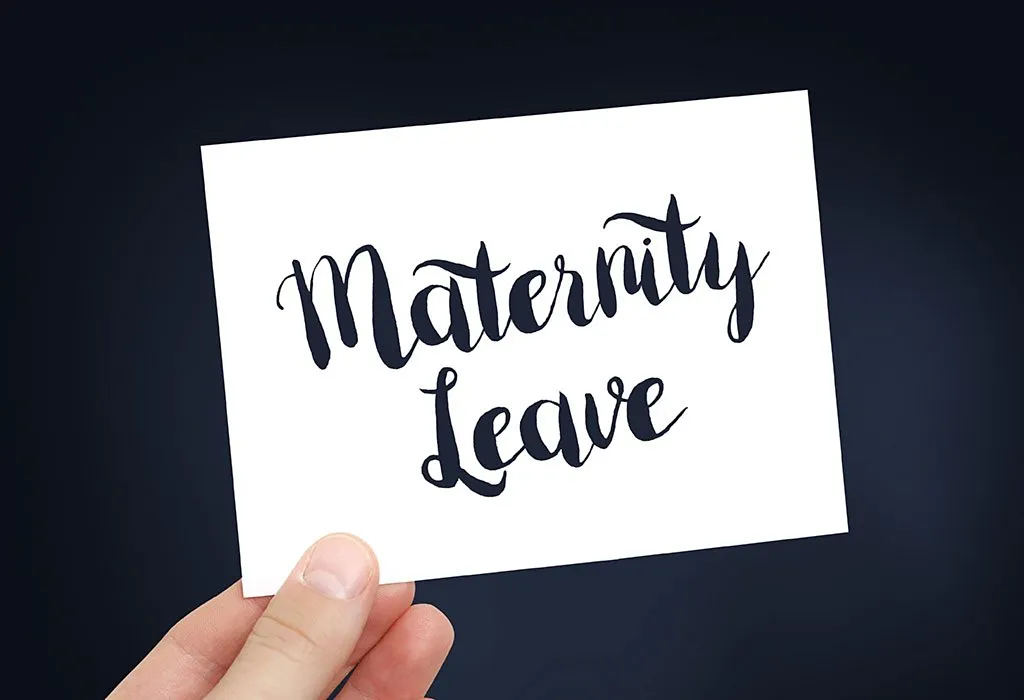How to Tell Your Boss You’re Pregnant: What to Say and When
Announcing the exciting news about your pregnancy to the world is one of the best parts of being pregnant. While breaking this “good news” to the family can be quite a breeze, it is the part where people at the workplace have to be informed that gives us sleepless nights. Announcing pregnancy at work can feel overwhelming, as you may worry about timing, reactions, and professional implications. Choosing the right moment to share your news is crucial—consider waiting until after the first trimester or when you feel comfortable. Prepare for questions about your plans regarding maternity leave and workload adjustments. A thoughtful approach ensures a smoother transition and maintains positive relationships with colleagues.
Importance of Pregnancy Announcement at Work
Pregnancy brings profound changes, not just for you but also for your workplace. Sharing the news with your coworkers often leads to encouragement and understanding. By informing your employer early, you help ensure a seamless shift into parental leave, allowing ample time for adjustments. A clear and well-timed announcement facilitates better organisation, reducing potential workflow interruptions and creating a positive experience for everyone involved.
When to Inform Your Boss About Your Pregnancy
Sharing the news of your pregnancy with your employer is a significant step that requires careful timing and planning. Here’s a guide on when and how to inform your boss to ensure a smooth transition.
1. After Confirming Your Pregnancy with a Doctor
Before making any announcements, ensure your pregnancy is confirmed and stable, especially after the first trimester when the risk of complications decreases. This helps avoid unnecessary stress if changes occur early on.
2. Before Physical Changes Become Noticeable
If morning sickness, fatigue, or visible changes might affect your work, informing your boss early allows for possible adjustments, such as flexible hours or modified duties.
3. When You Need Workplace Accommodations
If your job involves physical labour, travel, or exposure to hazards, notify your employer as soon as possible to discuss safety modifications or alternative arrangements.
4. Before Major Work Commitments or Projects
If you’re leading a long-term project or have upcoming deadlines, giving your boss advance notice ensures proper planning for your maternity leave coverage.
5. Based on Company Policy or Legal Requirements
Some workplaces have specific guidelines on when employees should disclose a pregnancy, especially if requesting leave. Check your company’s HR policies to ensure compliance.
6. When You Feel Comfortable and Ready
There’s no universal “right time”—choose a moment when you feel confident and prepared to discuss your pregnancy, whether that’s early on or later in the second trimester.
7. If You’re Experiencing Severe Pregnancy Symptoms
If nausea, fatigue, or medical appointments are affecting your performance, informing your boss can help them understand and support your needs.
8. Before Office Rumours Start
If colleagues begin noticing changes, it’s better to share the news yourself to maintain professionalism and control how the information is communicated.
How to Tell Your Boss That You’re Pregnant
Sharing your pregnancy news with your boss can feel both exciting and nerve-wracking. A well-planned approach ensures professionalism while setting the stage for a supportive work environment. Here’s how you can go about announcing your pregnancy to your boss.
1. Choose the Right Time and Setting
Schedule a private, in-person meeting (or a video call if remote) to ensure confidentiality and avoid interruptions. Your boss’s cabin is the best place, or you could even grab a quick lunch with him/her if you are comfortable. Avoid busy periods or high-stress moments—opt for a calm time when your boss can focus on the discussion. Telling your manager that you are pregnant just before promotions or raises are due or on the cusp of a new project being announced is also not a good time. When you treat this special announcement with care, your boss will realise how important it is to you, and he will extend all his support.
2. Prepare What You Want to Say
Keep the conversation clear and professional. Example: “I’m excited to share that I’m expecting a baby in [month]. I wanted to discuss how we can plan for a smooth transition as I prepare for maternity leave.” Avoid the words “I am sorry” and be as professional as you can while sharing your happy news. If there is an important project you need to be a part of, make it obvious that you will do your best to prepare in advance, and you will be as committed as ever.
3. Highlight Your Commitment to Work
Reassure your boss by outlining how you’ll manage responsibilities before your leave. Mention any plans for delegating tasks or training colleagues to minimise disruptions. Do not forget your clients. If and when you decide to come back, you do not want to ruin the existing relationship because you “forgot” to tell them. This will send out a subtle message to them that they matter and that you care. It will also help you manage the expectations they have of you during your absence.
4. Discuss Next Steps and Accommodations
Address practical matters like:
- Estimated maternity leave timeline
- Any immediate adjustments needed (e.g., reduced travel, flexible hours)
- How you’d like to handle announcements to the team
5. Follow Up in Writing
After the meeting, send a brief email summarising key points (e.g., due date, leave plans) to create a paper trail. This ensures clarity and helps with HR documentation. Speak to the HR department and get details of the leaves you are entitled to and any other benefits. Don’t hesitate when asking about your maternity leaves and other benefits.
6. Stay Open to Questions
Your boss may need time to process the news or ask about logistics. Be prepared to collaborate on solutions while advocating for your needs.
How to Share the News of Your Pregnancy With Your Boss When Working Remotely
With remote work becoming increasingly common, you now have greater flexibility in deciding when and how to share your pregnancy news with your supervisor. While the delivery method might differ from an in-person announcement, the approach should remain consistent: maintain a positive tone throughout the conversation. Providing your expected due date during this discussion enables your manager to begin making necessary arrangements for your upcoming maternity leave.
How to Communicate Your Pregnancy to Your Boss Through Email
The rise of remote work has transformed how we communicate professional updates, including pregnancy announcements. While email might seem like the default option for virtual teams, the ideal approach depends on your existing relationship with your supervisor.
For those with strong manager relationships, a video call or face-to-face meeting often creates a more personal connection. However, email remains a valid option when:
- Your relationship is more formal or strained
- You prefer written documentation
- You want to give your manager time to process the information before discussing logistics
Sample Email Approach:
“I’m pleased to share that I’m expecting a baby, with my due date falling on [date]. My current plan is to continue working until [last working date] before beginning maternity leave. During this transition period, I’ll ensure all projects are properly documented and delegated. I intend to take the full [X weeks] of leave offered by our company and look forward to returning afterwards.
Please let me know if you’d like to discuss any temporary adjustments to my workload or schedule. I’m also happy to keep this information confidential until we determine the appropriate time to share with the team.”
When it comes to telling your boss you’re pregnant on email, this method maintains professionalism while allowing flexibility based on your specific workplace dynamics and comfort level. The written format provides clear documentation of your plans and needs.
How to Tell Coworkers You’re Pregnant
Sharing your pregnancy news with colleagues is an exciting milestone. The right approach ensures the announcement feels comfortable for you while keeping workplace relationships positive. Here are key considerations for telling your coworkers.
1. Pick Your Timing Thoughtfully
Announce when you’re ready, ideally after telling your manager. Choose a relaxed moment when coworkers can properly react, avoiding high-stress periods.
2. Keep the Tone Light and Professional
A simple, cheerful statement works best. For example: “I have some happy news to share – I’m expecting a baby this [season]!” You control how many details to provide.
3. Set Clear Boundaries if Needed
Specify whether this is public news or if you’d prefer discretion. You might mention tentative leave plans, but exact dates can wait for later discussions.
Questions to Ask After Sharing Your Pregnancy News
After announcing your pregnancy at work, it’s important to clarify expectations and plan ahead. Thoughtful questions help ensure a smooth transition for you, your team, and your manager. Here are key questions to discuss:
- Can you outline our company’s maternity/paternity leave policy and how to formally request leave?”
- How should we handle my workload and responsibilities during my absence?
- Are there options for adjusted hours or remote work as my due date approaches?
- What workplace adjustments (like ergonomic setups) are available if needed?
- How would you like me to keep the team updated about my plans?
- What’s the process for transitioning back to work after leave?
- Are there any parental benefits, like lactation rooms or childcare resources, I should know about?
- Who else needs to be informed, and when?
- Can we schedule follow-up meetings as my plans evolve?
FAQs
1. What if my boss reacts negatively to my pregnancy news?
Stay calm and professional. Document the conversation, then consult your company’s HR policy or local labour laws (e.g., the Pregnancy Discrimination Act in the U.S.). If the reaction crosses into discrimination (e.g., demotion, threats), escalate to HR or legal counsel. You have rights—don’t let fear silence you.
2. Should I disclose my pregnancy during the interview process for a new job?
Legally, you’re not obligated to share. However, weigh the risks: hiding it may strain trust later, but disclosing it could (unlawfully) bias the employer. If asked directly, you can say, “I’m excited about this role’s future, and my personal life won’t impact my commitment.”
3. How do I handle a pregnancy announcement if I work in a male-dominated industry?
Own your news confidently. Example: “I’m sharing this because I value transparency—let’s discuss how we’ll manage projects during my leave.” Address potential stereotypes head-on (e.g., “I plan to return full-time”). Seek allies (HR, senior women) if you face outdated attitudes.
Pregnancy is an experience of a lifetime; don’t be afraid of sharing this news with your boss or other colleagues. Most women feel that they may be asked to resign and won’t find a place in the corporate set-up after they have a baby. However, this is a discrimination and most professional organisations would refrain from doing something like this. The bosses of today are open-minded and they understand, so don’t be afraid. Announcing your pregnancy at work may get you worried, but your organisation is in a dilemma too. They will be worried about work getting affected and projects being delayed, so give them and yourself enough time to take appropriate steps to manage things. Keep all lines of communication open throughout this period, and you will be able to manage things well.
Also Read:
Fun Things to do during Pregnant
Activities to Avoid in Pregnancy
Taking Care of Your Pregnancy at Work
Household Work To Do & Avoid In Pregnancy
Was This Article Helpful?
Parenting is a huge responsibility, for you as a caregiver, but also for us as a parenting content platform. We understand that and take our responsibility of creating credible content seriously. FirstCry Parenting articles are written and published only after extensive research using factually sound references to deliver quality content that is accurate, validated by experts, and completely reliable. To understand how we go about creating content that is credible, read our editorial policy here.




































